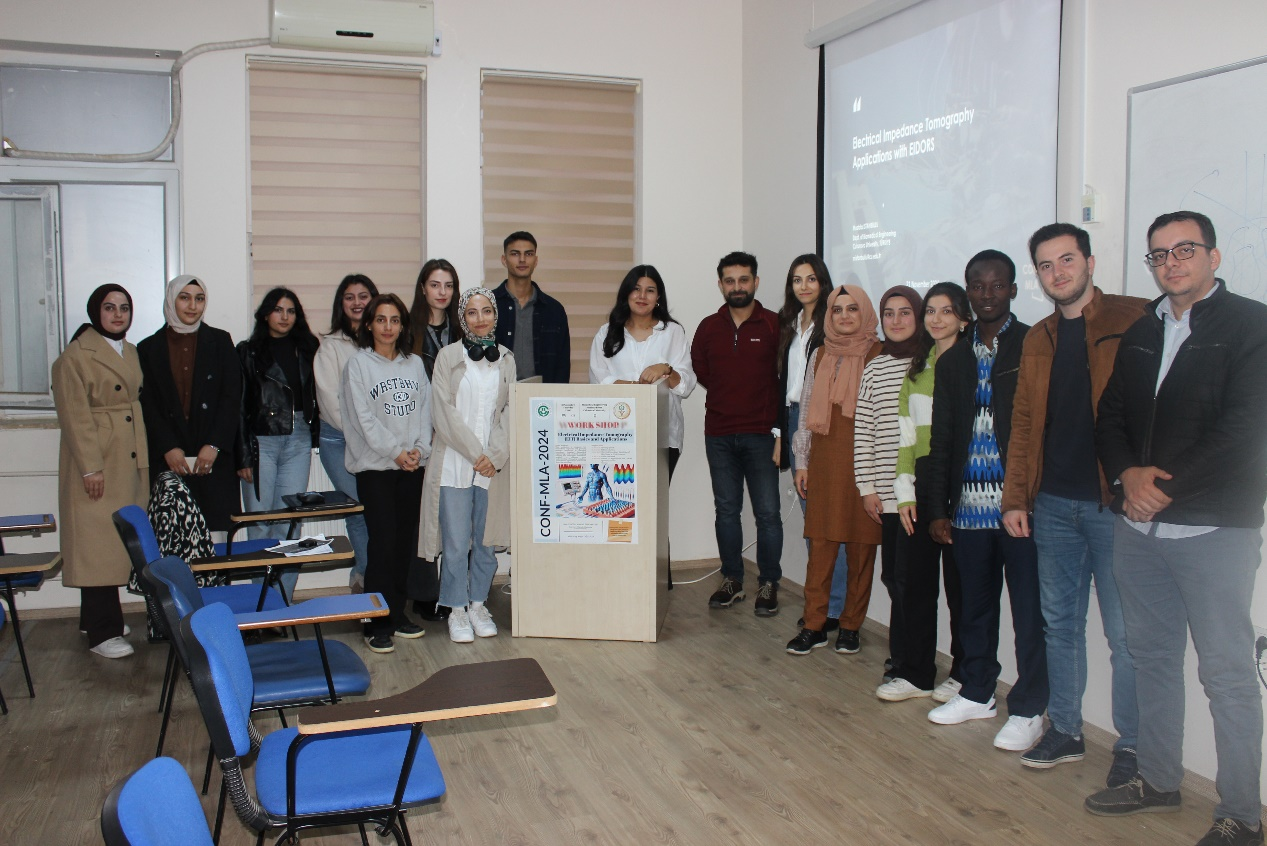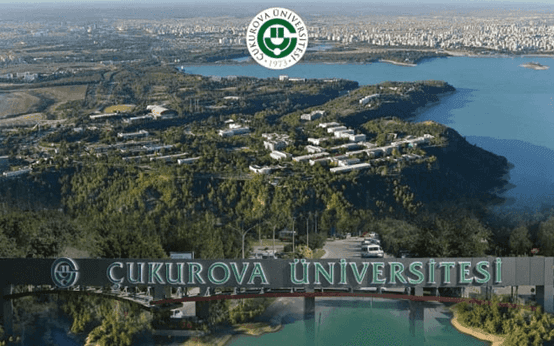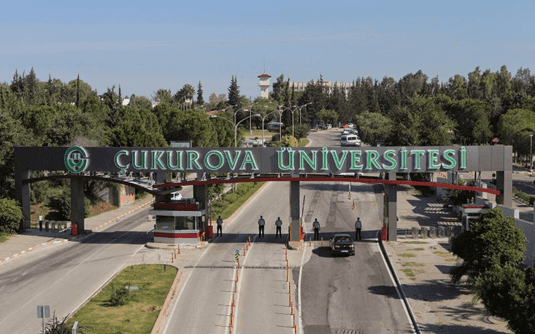Workshop Title:
Exploring Electrical Impedance Tomography (EIT) Basics and Applications
Date:
November 21st, 2024 (GMT+3)
Organizer:
Department of Biomedical Engineering, Faculty of Engineering, Çukurova University
Keywords:
- impedance imaging
- reconstruction algorithms
- EIT
Workshop Chair:
Personal Bio:
Mustafa Istanbullu is an Assistant Professor and vice chair of the undergraduate program in Biomedical Engineering at Çukurova University, where he has been working since 2021. He received his Bachelor's degree in Electrical and Electronics Engineering and later earned a master's degree in Biomedical Engineering from the Istanbul Technical University.
For his master's thesis, he focused on the early diagnosis of osteoporosis using artificial neural networks and support vector machines. He then pursued his PhD at Çukurova University, where his research centered around the design and simulation of a carbon nanotube hybridized field-effect transistor biopotential sensor.
His research interests include microelectronics, microfabrication of semiconductor devices, modeling of electronic devices, analog/digital circuit design, and biomedical instrumentation. He has published articles in international scientific journals and has received an international patent in 2021 for his invention of an ANN-based single calibration impedance measurement system for skin impedance range. He is committed to advancing the field of biomedical engineering and providing his students with an exceptional education.
Workshop Description:
Background:
Electrical Impedance Tomography (EIT) represents a non-invasive imaging method employed in various fields, reconstructing internal conductivity distributions by measuring electrical impedance at a subject's surface. EIT has garnered significant attention in medical imaging due to its non-radiative nature and real-time imaging capabilities. It finds applications in monitoring lung ventilation, brain imaging, and breast cancer detection, among others. EIT's versatility extends beyond medical domains, proving valuable in industrial processes such as monitoring fluid distribution in pipelines and quality control in manufacturing. However, successful implementation of EIT heavily relies on robust software tools for data analysis and image reconstruction.
Eidors software stands as a pivotal resource in the realm of EIT. It offers a comprehensive platform for data processing, visualization, and image reconstruction. Eidors facilitates the transformation of raw electrical measurements into meaningful visual representations, aiding researchers and practitioners in interpreting data and extracting valuable insights. Its user-friendly interface and compatibility with MATLAB make it an indispensable tool for both novice and experienced users in the field of electrical impedance imaging.
Goal/Rationale:
This workshop aims to equip participants with a profound understanding of EIT principles and hands-on experience with the Eidors software. By the end of the workshop, attendees will be proficient in utilizing EIT techniques and leveraging Eidors for practical applications.
Scope and Information for Participants:
The workshop spans over a whole day and encompasses theoretical sessions, practical demonstrations, and interactive exercises. Participants will explore EIT fundamentals, dive into the functionalities of Eidors, engage in simulated experiments, and examine real-world case studies. The workshop will cover image reconstruction techniques, data interpretation, and applications in biomedical and industrial domains.
Prerequisites
- Basic knowledge of electrical engineering principles would be advantageous.
- Familiarity with MATLAB or programming languages used in scientific computing would be beneficial but not mandatory.
Target Audience
This workshop is designed for researchers, engineers, and graduate students interested in electrical impedance imaging, biomedical engineering and medical imaging utilizing EIT techniques. Individuals seeking to enhance their understanding of imaging modalities and software applications will benefit from this workshop.
Equipment:
Participants are required to bring:
- Personal laptops with administrative access for hands-on exercises.
- MATLAB installed (if available).
Publication
Accepted papers of this workshop will be published in Applied and Computational Engineering (Print ISSN: 2755-2721) or EAI Community Research Series - CORE (ISSN: 2593-7642), and will be submitted to EI Compendex, Conference Proceedings Citation Index (CPCI), Crossref, Portico, Google Scholar, CNKI, Inspec, and other databases for indexing.
Title: Applied and Computational Engineering (ACE)
Publisher: EWA Publishing, United Kingdom
ISSN: 2755-2721 2755-273X (electronic)
Title: EAI Community Research Series - CORE
Publisher: EAI
ISSN: 2593-7642
Highlights:
The "Electrical Impedance Tomography (EIT) Basics and Applications" workshop was organized to provide an overview of EIT principles, simulations, and applications, with a specific focus on hands-on exercises using software tools like COMSOL Multiphysics and MATLAB. The event attracted participants from various disciplines, including biomedical engineering, electrical and electronics engineering, and medicine.
Attendees, including researchers and students from various disciplines such as biomedical engineering and medicine, engaged in hands-on exercises using software like COMSOL Multiphysics and MATLAB, allowing them to bridge theoretical concepts with practical implementation. The event fostered interdisciplinary collaboration and knowledge-sharing.
Participants expressed positive feedback, noting the value of hands-on sessions and the interactive format. Suggestions included offering advanced workshops focused on specific EIT applications or expanding on the use of simulation tools. The success of this workshop was made possible by the contributions of organizers, instructors, and enthusiastic participants.






Access to Workshop:CONF-MLA 2024 Workshop -- Adana - YouTube
Venue:
Balcalı, Çukurova Üniversitesi Rektörlüğü, 01330 Sarıçam/Adana, Turkey

VISA:
https://www.mfa.gov.tr/
- Visitors who are not exempt from entry visa must obtain their visas or schedule an appointment with the Turkish Consular offices via Pre-Application System for Turkish Sticker Visa (www.visa.gov.tr). The applicants who meet the requirements will be directed by the Pre-Application System for Turkish Sticker Visa to the e-Visa system (www.evisa.gov.tr) In those countries where Türkiye does not have a consular representation can also use online scheduling for appointments with the nearest accredited consular office of Türkiye.
- In order to avoid inconveniences that may be caused by delays in processing, it is recommended to apply for visas at least one month in advance before the planned travel.
- The visas submitted to foreigners do not guarantee absolute rights of entry to Türkiye.
- Visa fees are not refundable in cases where applications are rejected.
- All applicants are required to have a medical insurance that will be valid during their stay in Türkiye.
- The length of stay provided by visa or visa exemption cannot exceed 90 days within each 180 days. The regulation of 90 days of stay within the last 180 days is binding for all foreigners that will travel to Türkiye.
- It is not possible for foreigners holding two passports to stay in Türkiye for 90 days each with their two different passports within the last 180 days.
- In all types of visa applications, Turkish consular offices may issue visas with a maximum duration of stay of 90 days. The foreigners who wish to stay longer than 90 days in Türkiye, should apply for "Short Term Residence Permit" at the Provincial Directorate of Migration Administration in order to extend their residence.
- The residence permit of the foreigners will be cancelled if they stay outside Türkiye for longer than 120 days in total during the last year.
- For United Nations (UN) Travel Document (Laissez-Passer) holders who have blue UN travel documents, visa exemption with 90 days length of stay within the preceding 180 days may apply during their official visit to Türkiye if they can certify their official assignment. Red UN Travel Document holders, shall be exempt from entry visa and may stay in Türkiye 90 days within the preceding 180 days regardless of their purpose of visit. General visa provisions shall apply for Blue UN travel document holders subject to regulations specified according to their country of origin.
- Visa applications for travels except for touristic or trade purposes (work or study etc.) will need to obtain visa through Turkish Representations in the abroad.
- Regardless of the visa regime applied towards the citizens of a country, the travel document holders of that country need to obtain visa from Turkish missions beforehand.
- Any applicant under the age of 18 must submit official written approvals from both parents. For those applicants who certify that their parents are officially divorced and prove the parent holding their custody as well as for those with one parent deceased, visas may be issued in accordance with their purpose of visit.
- The authorization of processing the residence permit applications submitted by the following persons who enter Türkiye availing visa-free regime and without requirement of obtainment of Student Visas lays with Local Immigration Offices (Provincial Directorates of Migration): Foreigners who arrive in Türkiye upon invitations by universities under Turkish Higher Education Board to study at the associate, undergraduate, graduate, post-graduate, Ph. D levels pursuant to international student exchange programs, cultural programs as well as under EU Education and Youth Programs.
- For foreigners wishing to enter Türkiye via naval ports with touristic purposes, visa-free entry permits may be issued by the local governorates. These permits shall have a maximum 72 hours duration of stay and will be only valid for sightseeing purposes in the vicinity of naval ports where they entered the country. This practice, as it intends to facilitate entry for those visitors subject to visa, does not entitle visitors to visa. Passports of these visitors are not retained by the border authorities; however, visitors are given "Harbor City Entry Permit" which is required to be returned to the authorities upon their exits.
- Any piece of data submitted here may be processed and stored in database accessible to the relevant Turkish authorities in accordance with their respective mandates.
Tourist Visa
- If an invitation letter is submitted for a Touristic Visa application, it must include the inviting person's TR Identity Number, clear identity, the list of invitees, permanent address, contact number, length and purpose of stay and the affinity with the applicant must be stated in the letter. If the inviting side is an organization or a company, tax registration certificate of the organization will be required. In the invitation letter it is also required for the inviting person/authority to pledge for covering victuals and accommodation expenses and for taking their own responsibility. The applicant is required to have sufficient and/or regular remunerations.
Attend in person:
If you want to attend the workshop on-site, please email the Conference Committee: [email protected].





